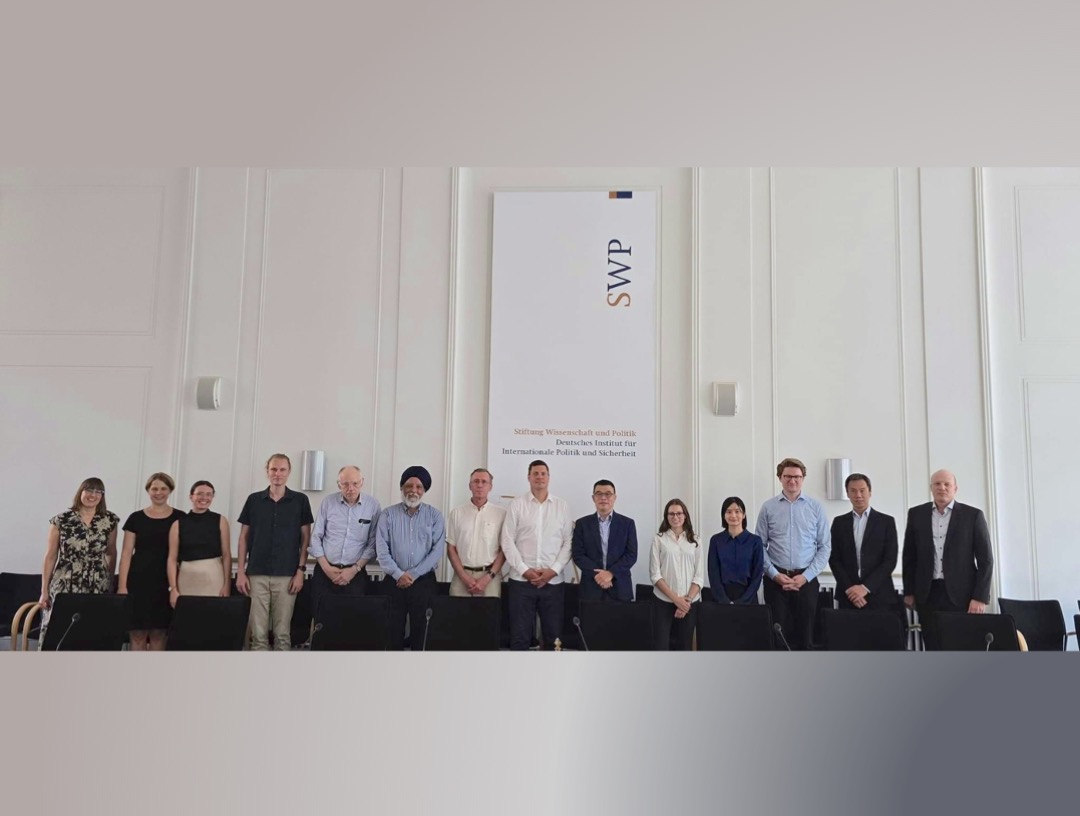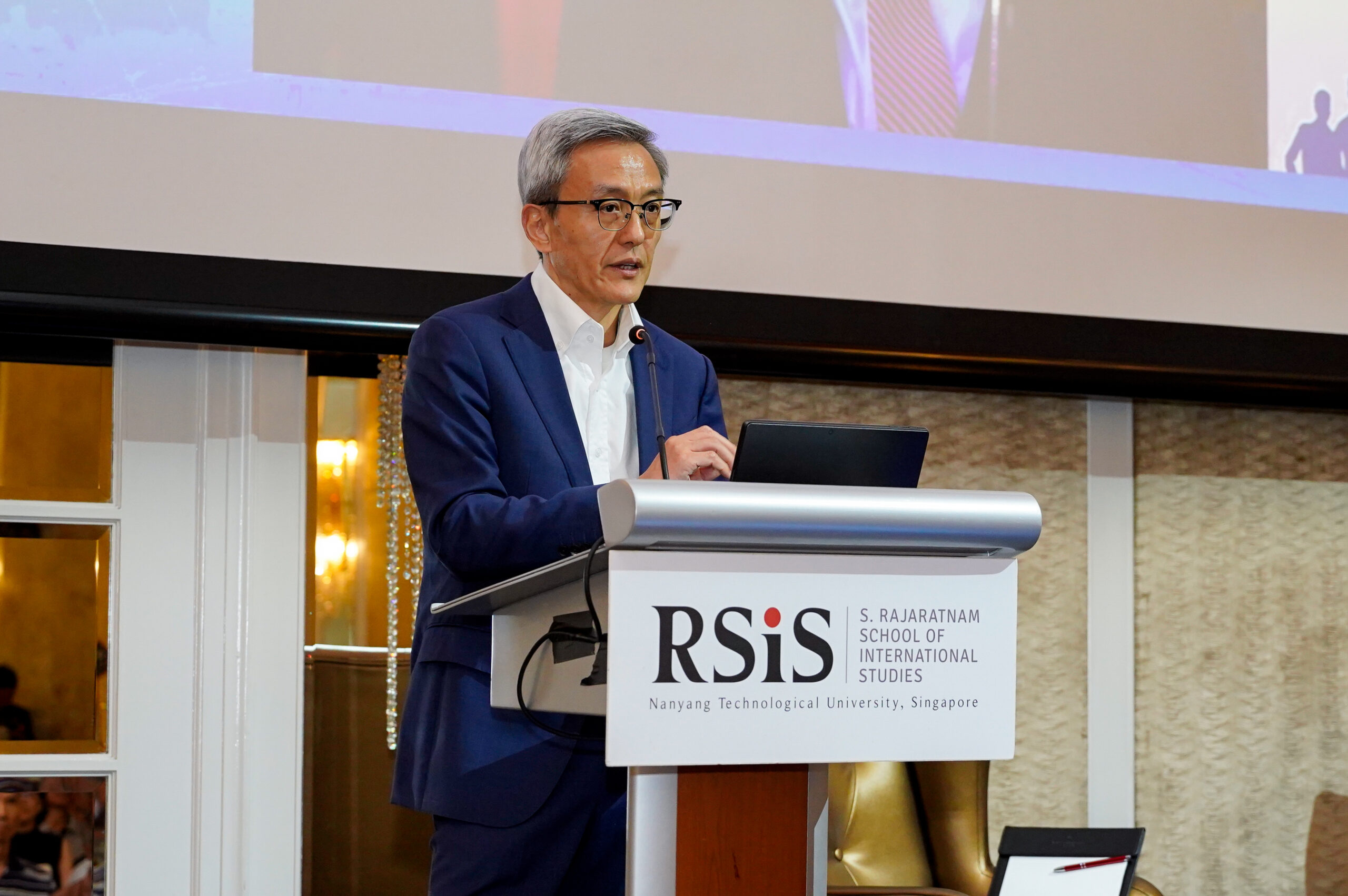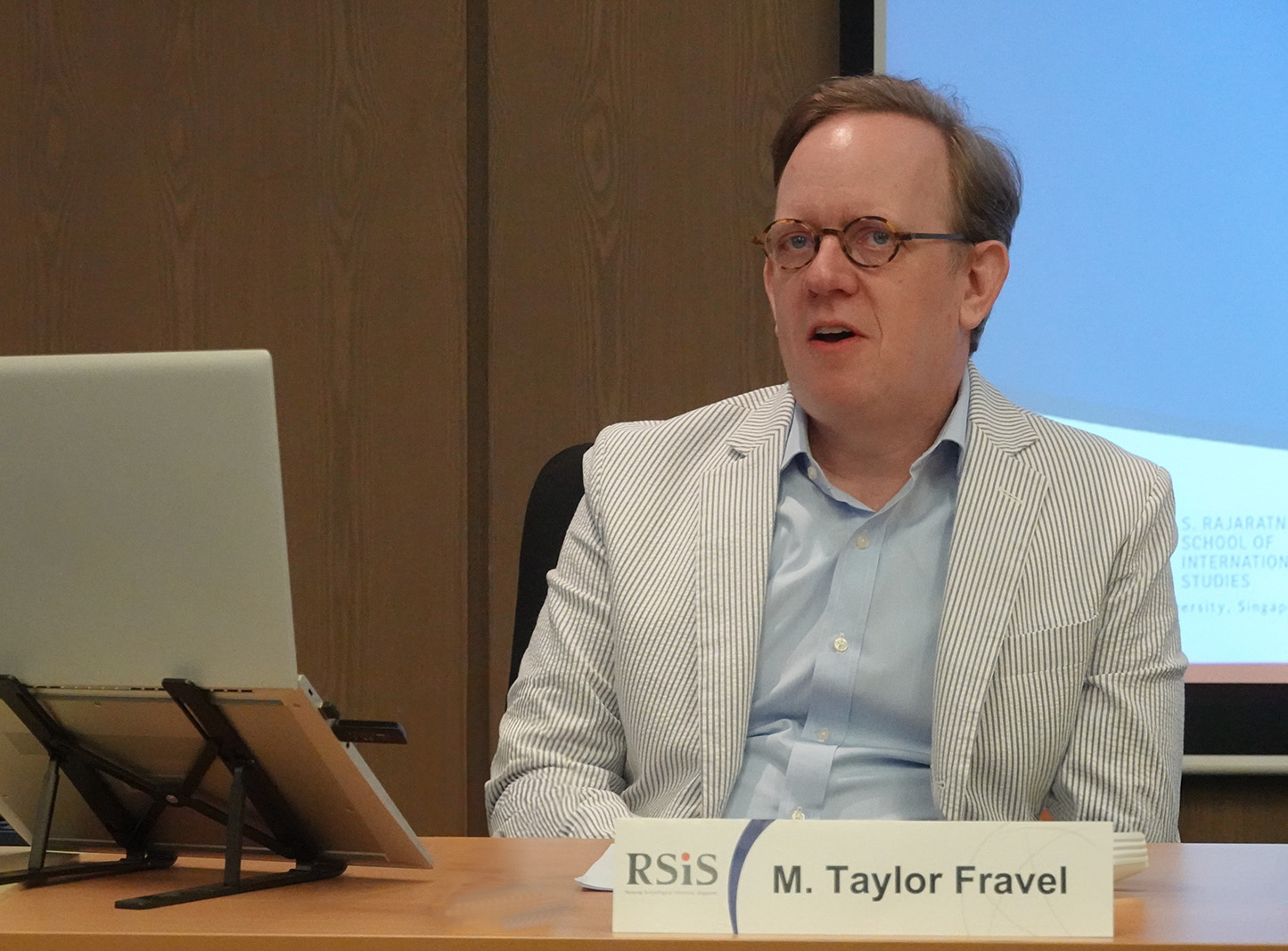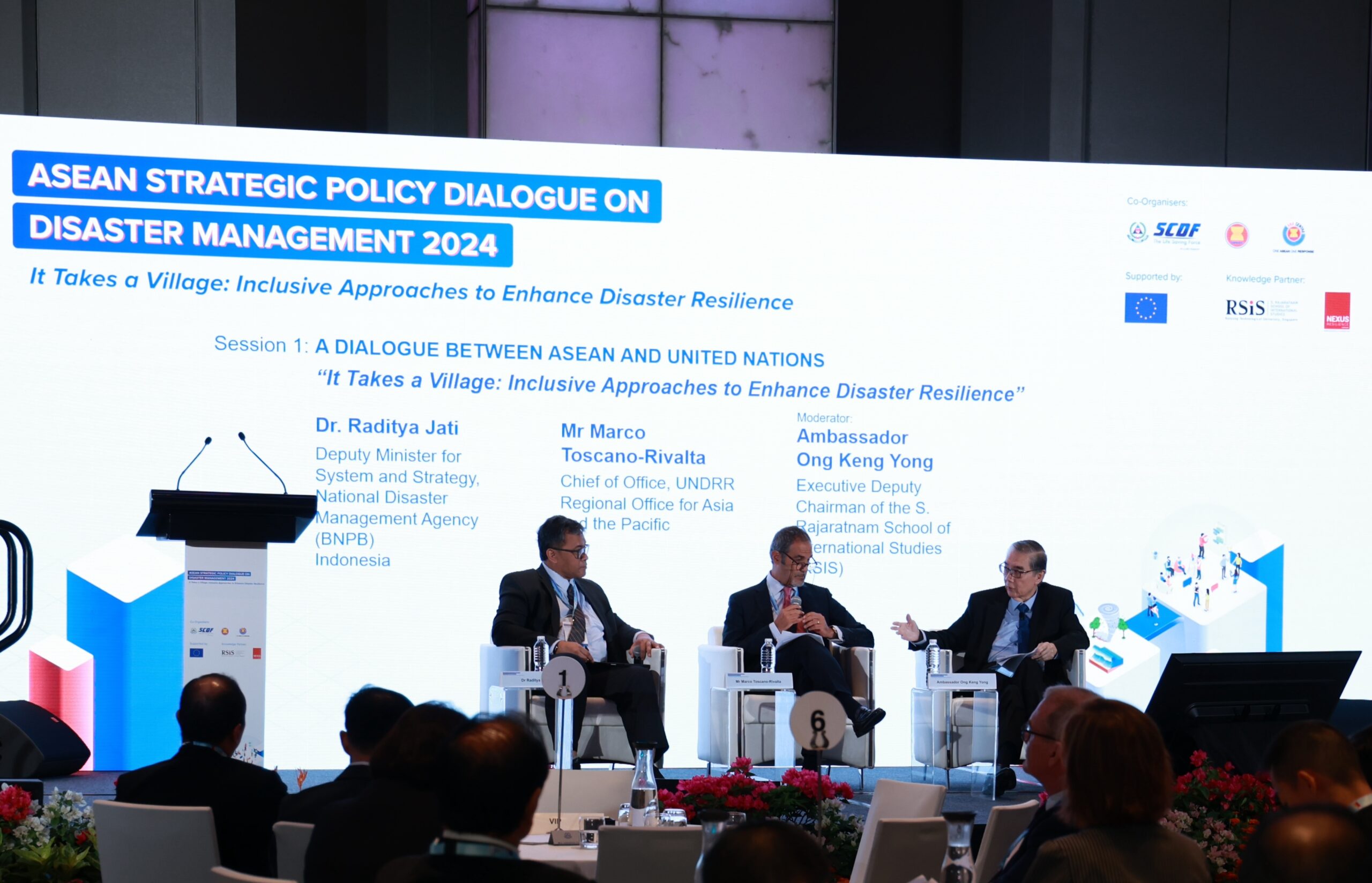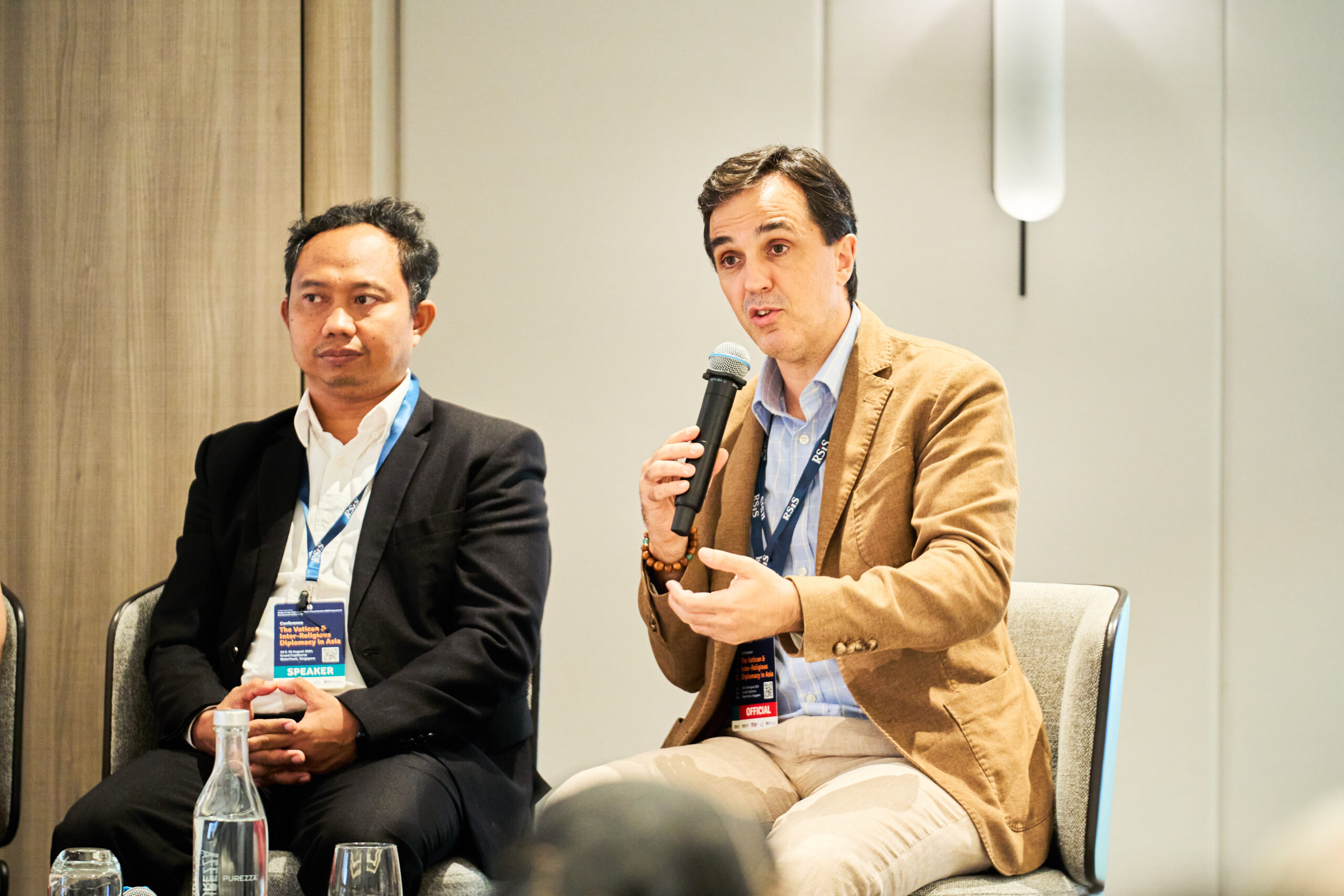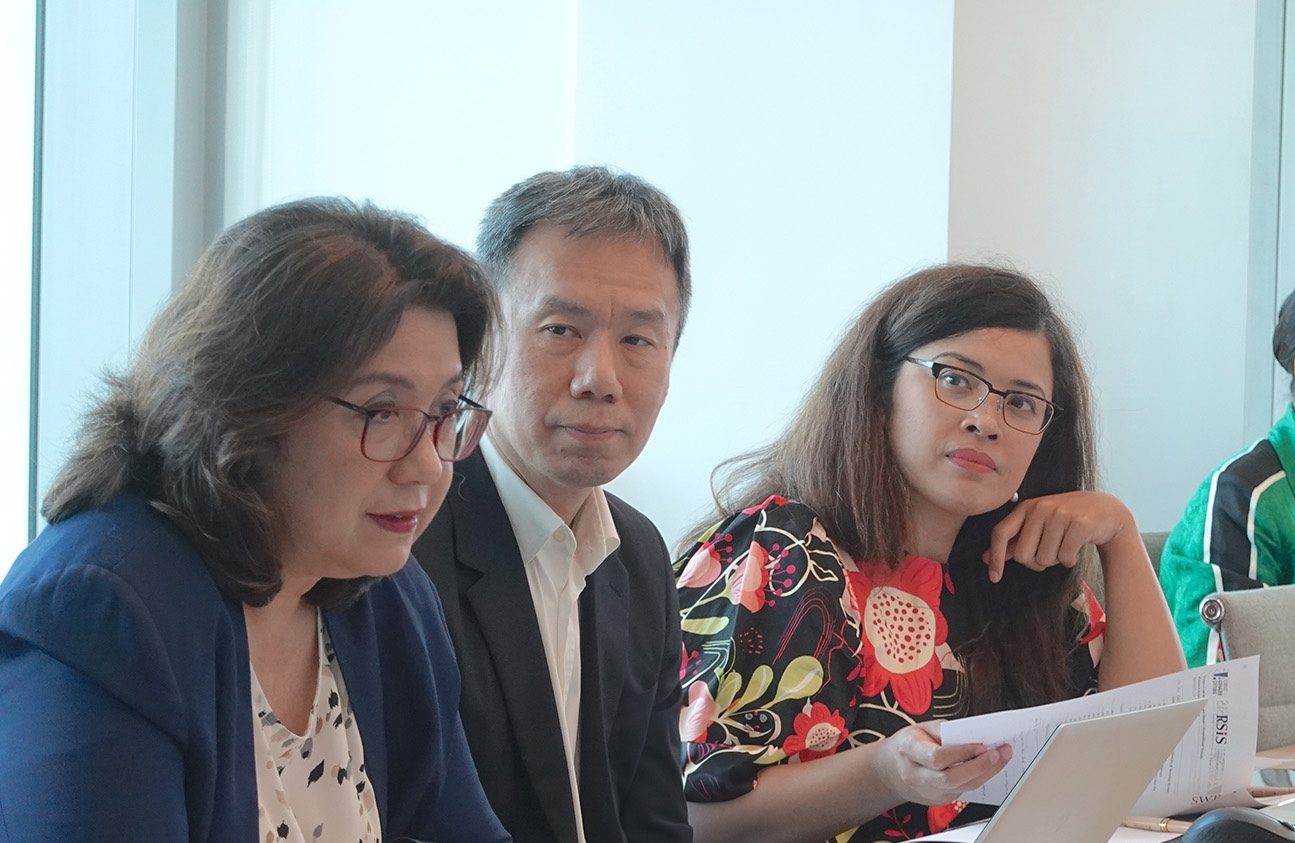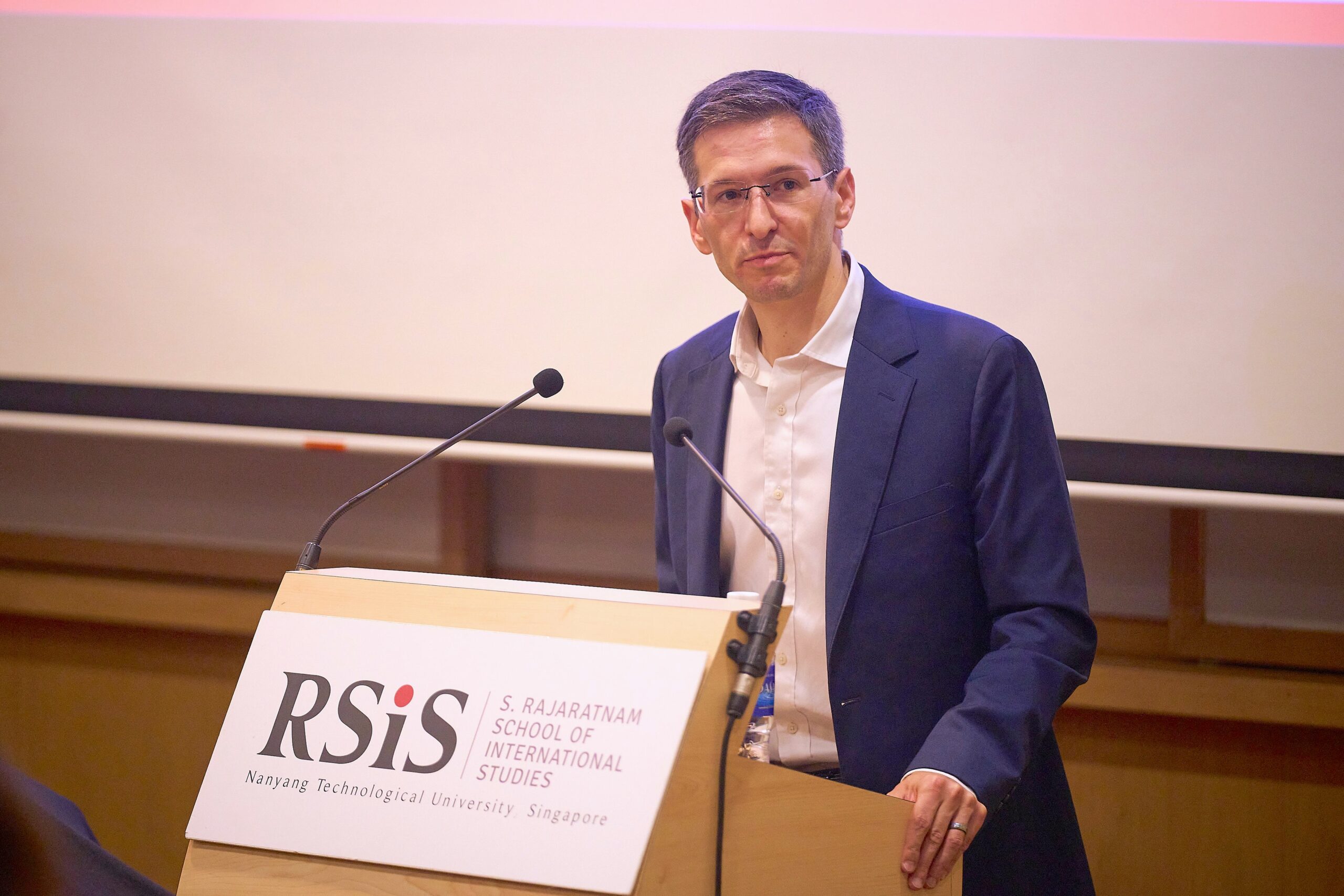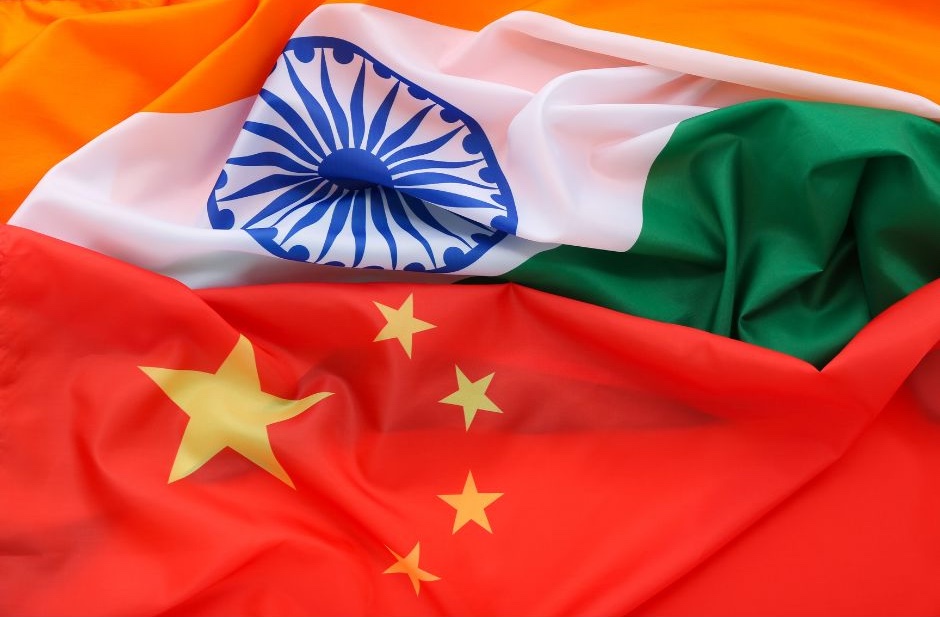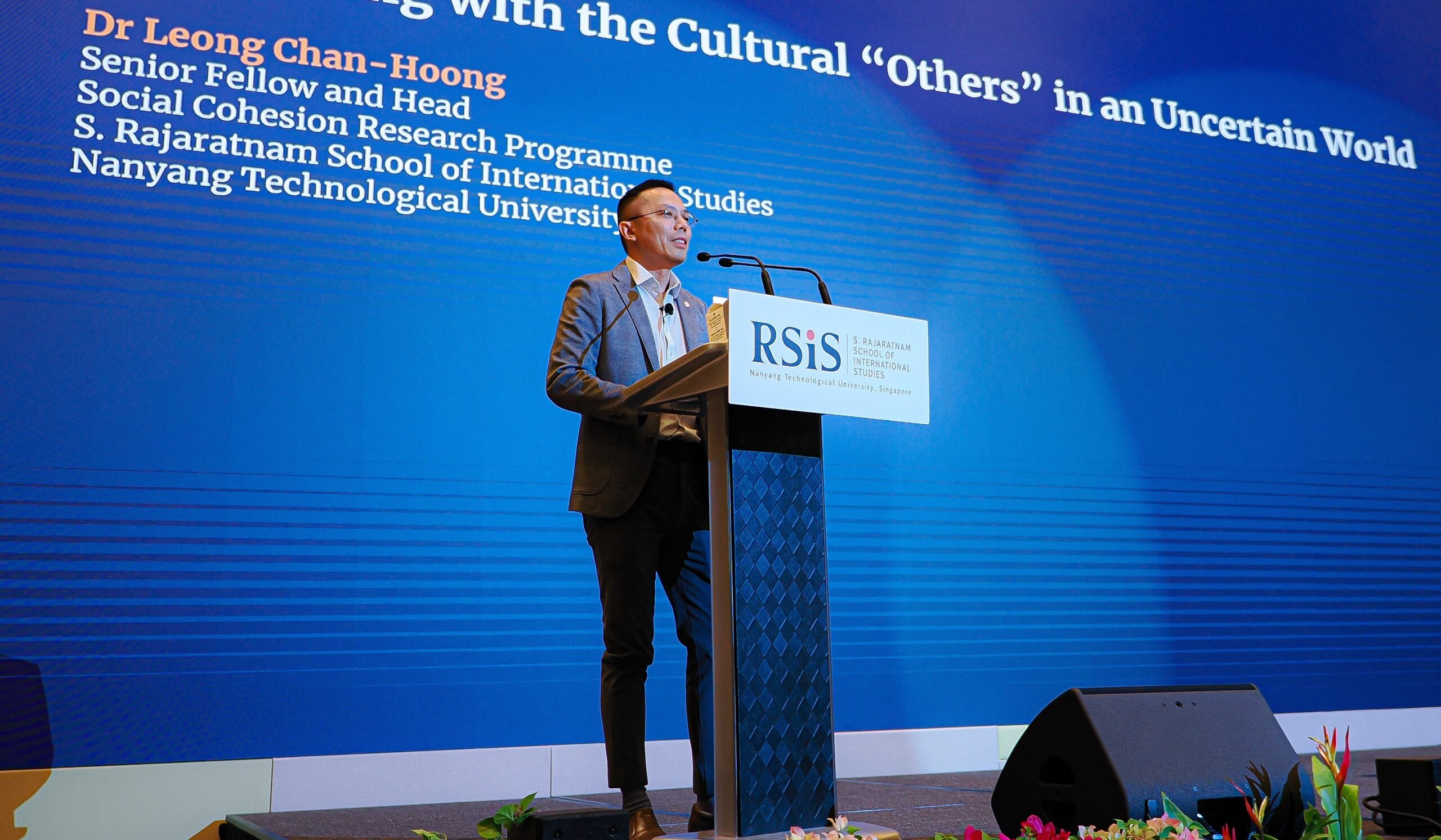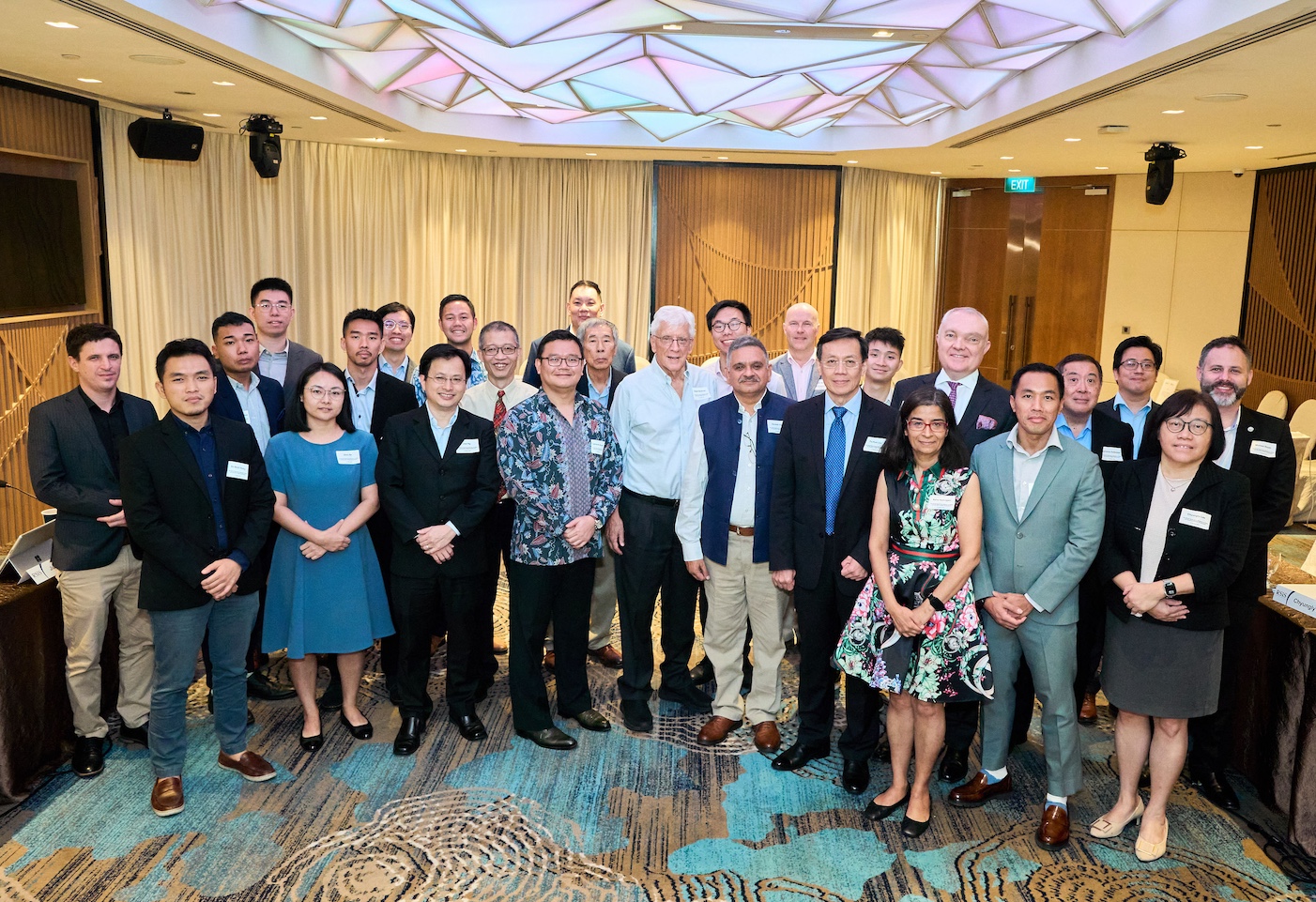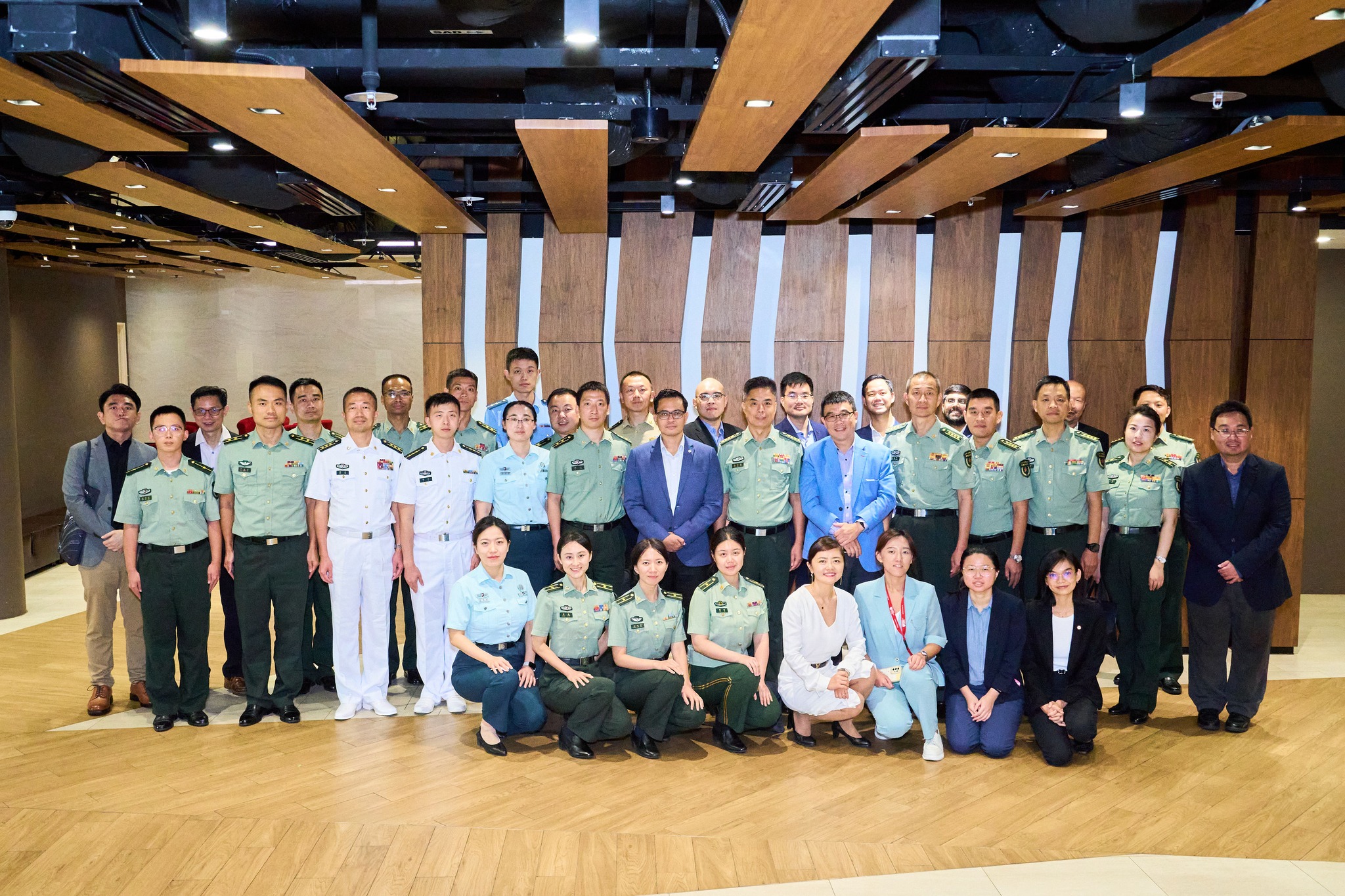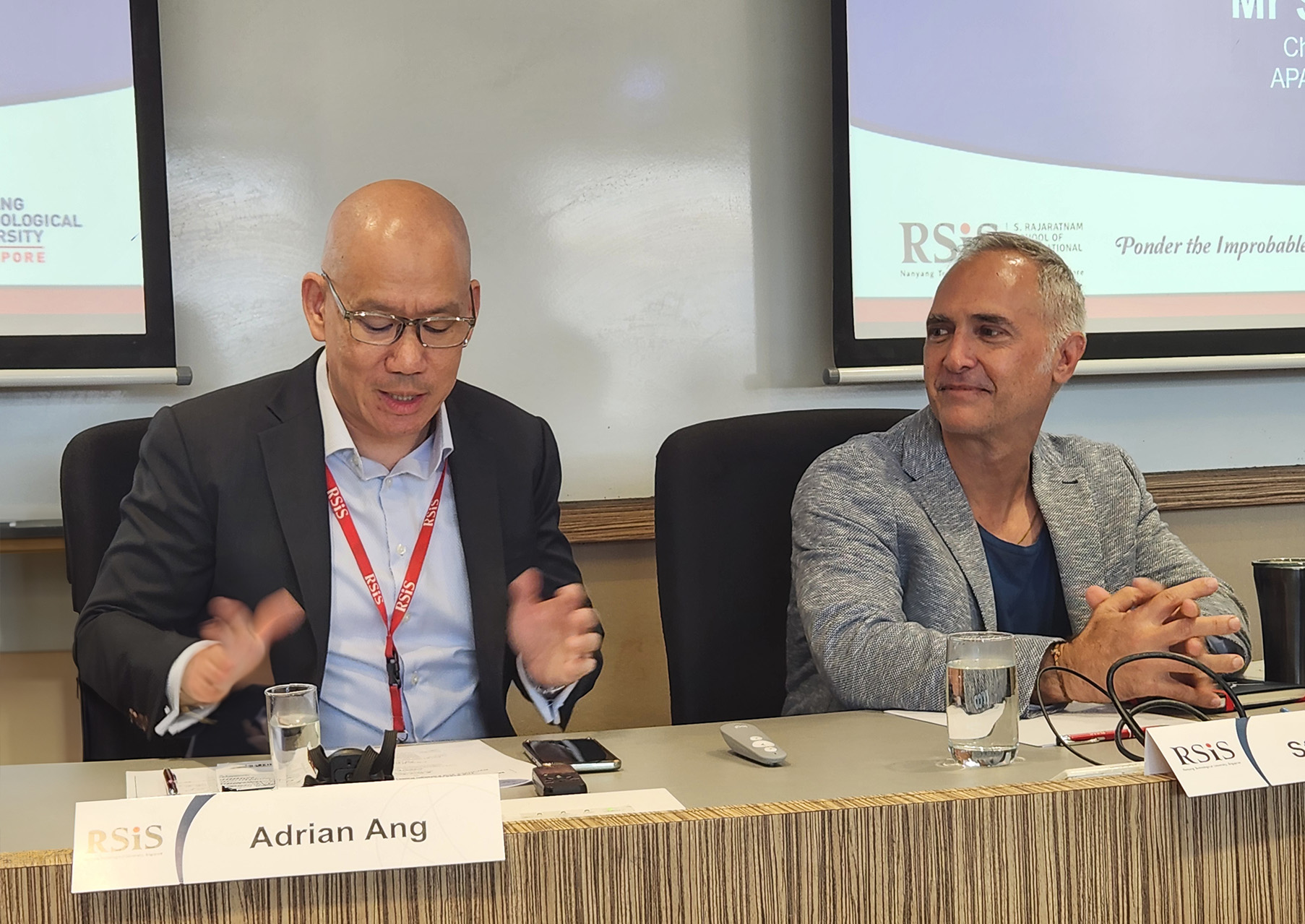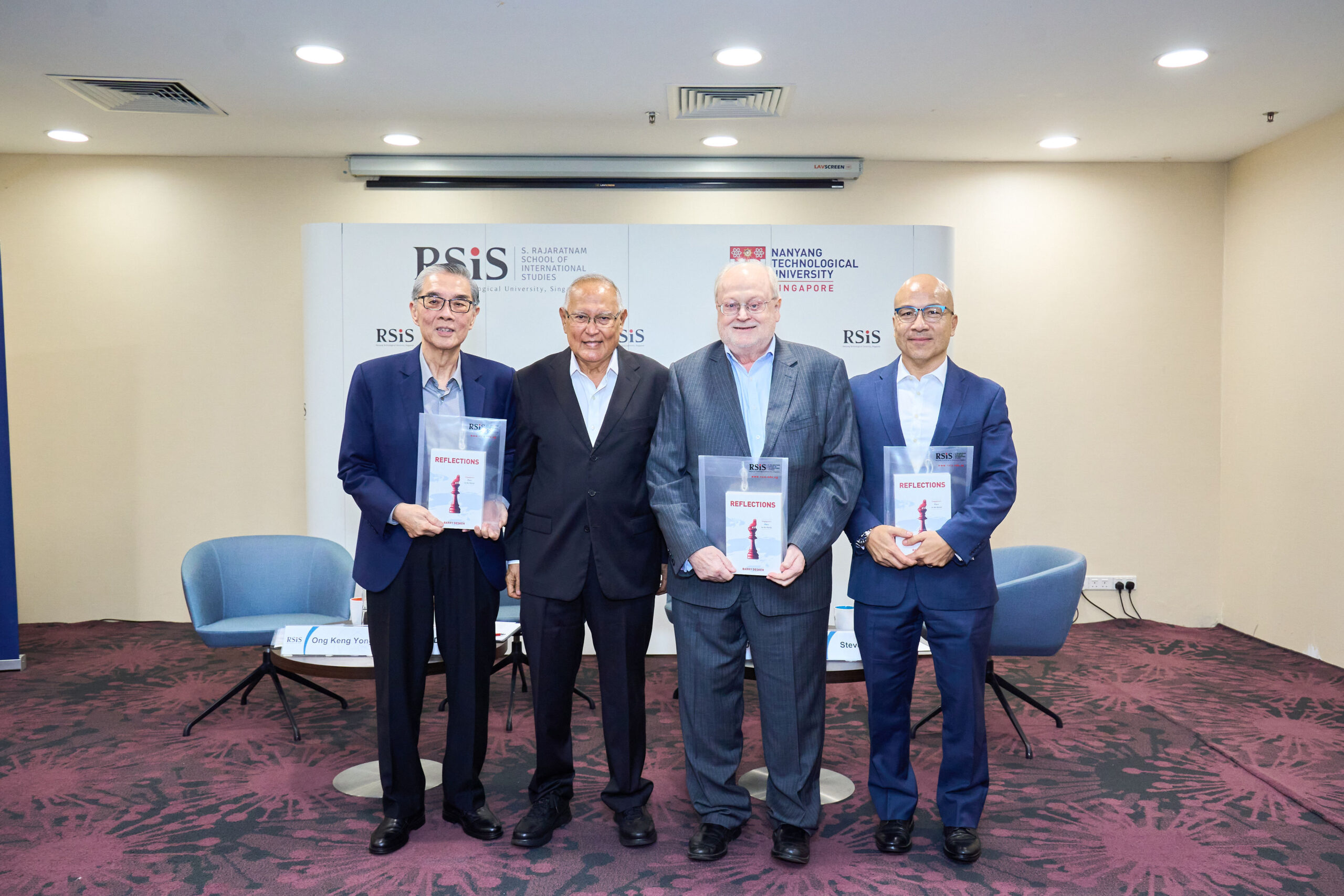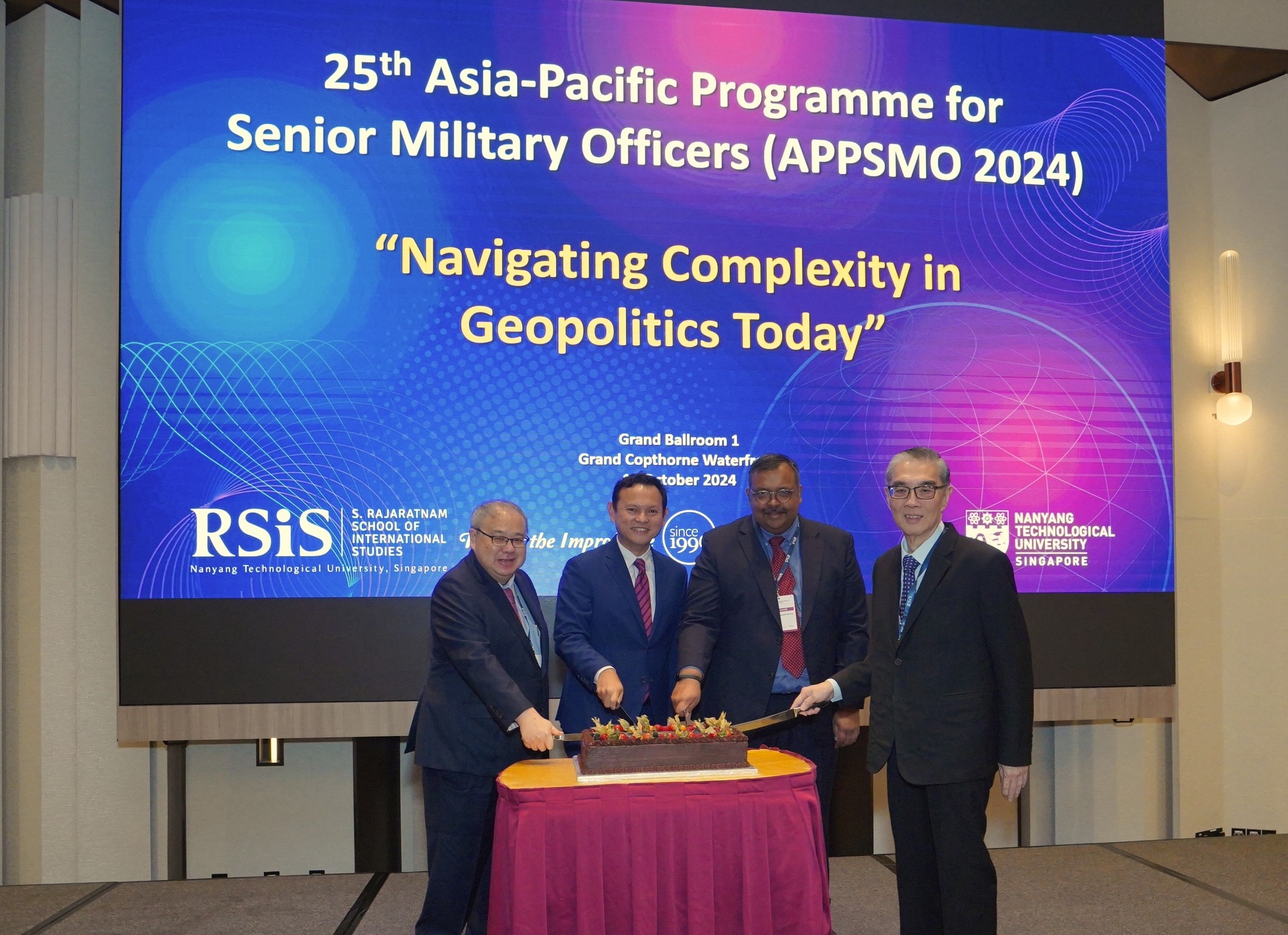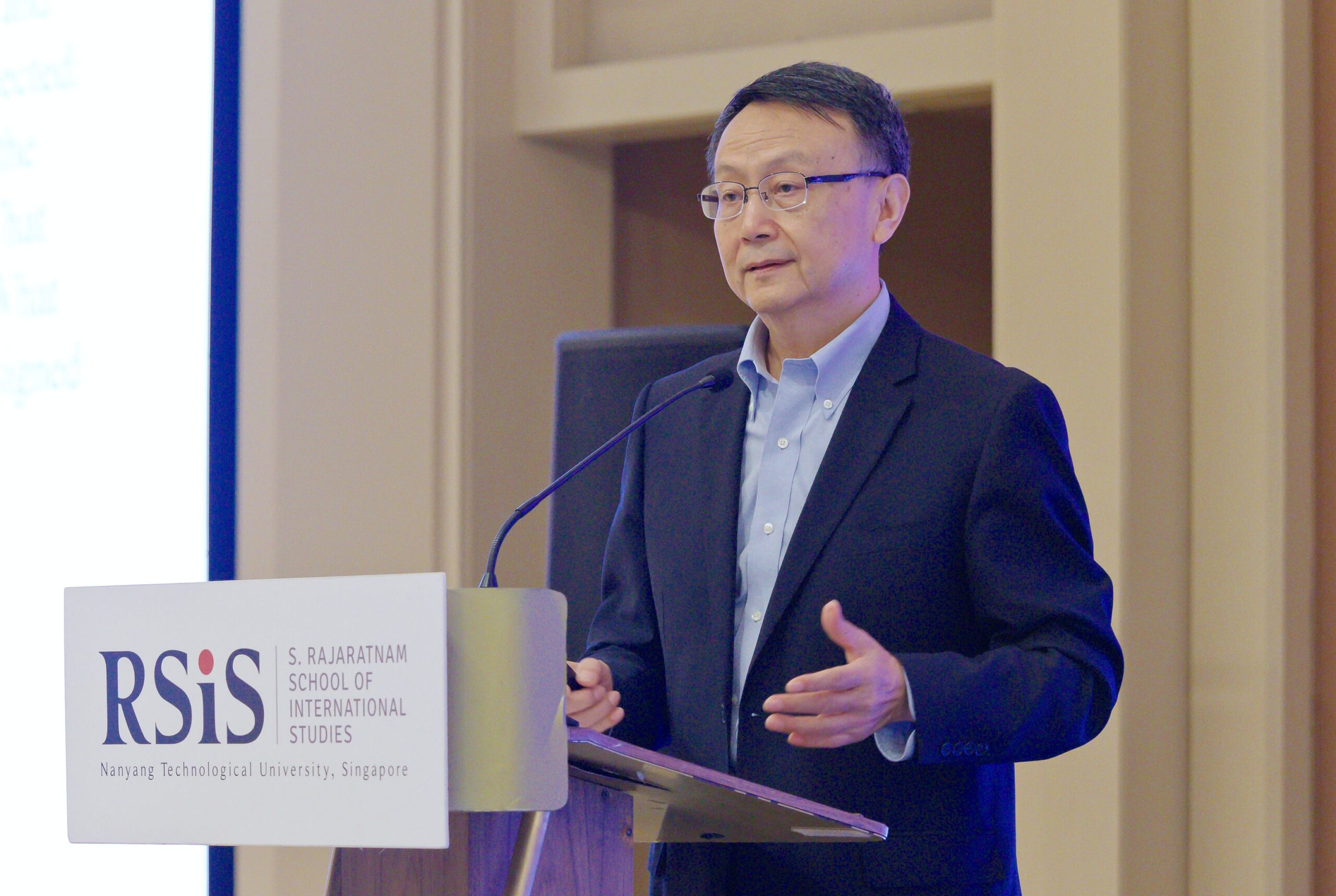
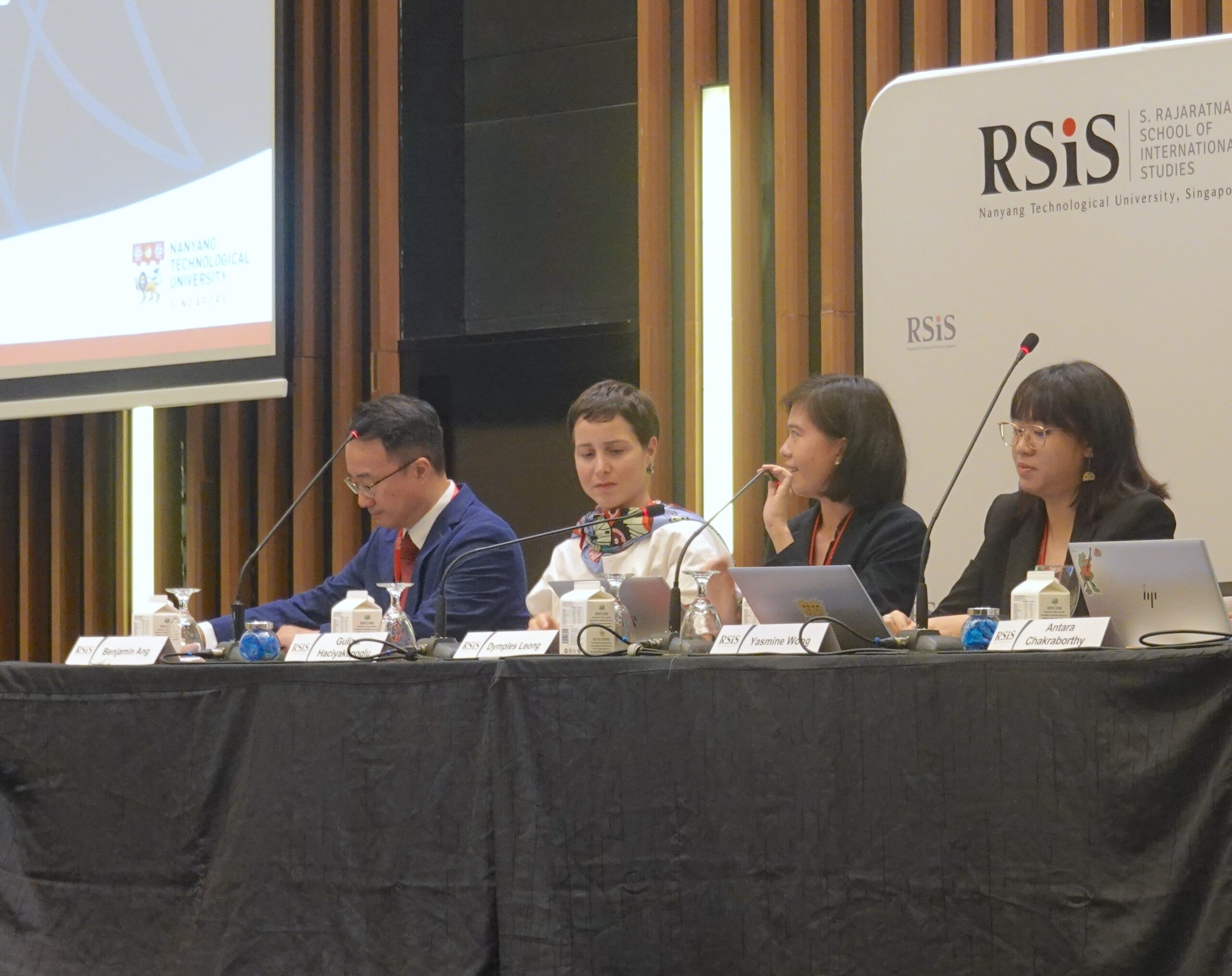
The Centre of Excellence for National Security (CENS) organised its annual Hybrid Threats Workshop, which took place from 23 to 24 October 2024. With the theme of “Confronting Complexity: Safeguarding National Security against Hybrid Threats,” the workshop brought together over 90 participants from government agencies, research and academic institutes, non-government organisations, and foreign embassies in Singapore. International and local speakers examined how the collective efforts of government, civil society, and technology companies had contributed towards effective countermeasures and mitigative strategies in tackling hybrid threats.
The workshop opened with a series of lectures delivered by CENS researchers. Mr Benjamin Ang, Senior Fellow and Head of CENS, presented the Centre’s efforts in developing frameworks to identify foreign interference and information operations and classifying hybrid threats. Dr Gulizar Haciyakupoglu, Senior Associate Fellow, and Ms Dymples Leong, Associate Research Fellow, shared their insights into screening measures for foreign direct investment (FDI). Ms Yasmine Wong, Associate Research Fellow, and Ms Antara Chakraborthy, Senior Analyst, discussed their research on societal fault lines, highlighting vulnerabilities malicious actors might exploit to undermine social cohesion.
The first panel was centred on “Navigating Turmoil: Understanding Civil Unrest and Far-Right Movements”. Professor Kumar Ramakrishna, Dean of RSIS, started the panel by analysing the white supremacist extreme right and its implications in Southeast Asia and Singapore. Professor Marco Bünte from the University Erlangen Nuremberg then explored repression, radicalisation, and resilience in protest movements, with Myanmar and Thailand as key case studies. Finally, Dr Mohamed Bin Ali, Senior Fellow at RSIS, discussed Political Islam and the contemporary challenges it brings, as well as the enduring threat of self-radicalisation.
The second panel focused on “Guarding against the Invisible Hand: AI Manipulation and Manipulating through AI”. Professor Peixi Xu from the Communication University of China, introduced various AI regulatory approaches, then focused on the paradoxical Chinese regulatory approach emphasising both AI development and risk control. Professor Marcello Ienca from the Technical University of Munich reviewed and defined manipulation, and explored digital manipulation as a breach of cognitive literacy, calling for reconsideration of how we protect individuals from the emerging threats in the age of AI. Ms Snigdha Bhardwaj, Director from Google, provided an in-depth look at Google’s end-to-end approach to AI safety and responsibility and highlighted their commitment to building AI that benefits society.
Speakers of the third panel presented on “Economic Coercion”. Professor Zhongmei Wang from Shanghai Institutes for International Studies analysed four models of third-country resistance to economic coercion and examined how these nations can contribute constructively to strategic competition between China and the United States (US). Dr Karthik Nachiappan, Research Fellow at the National University of Singapore, discussed the geoeconomic dilemma that India is facing, focusing on its need to balance tensions with both China and the US, along with its own complex relationship with China. Dr Kaewkamol Pitakdumrongkit, Senior Fellow and Head of Centre for Multilateralism Studies at RSIS, explored the pressing issue of economic coercion, assessing its implications and responses for Singapore within an increasingly intricate global environment.
For the fourth panel on “Influence and Information Operations,” Colonel Lorna Ward, Assistant Commander Reserves from the UK Ministry of Defence, outlined the British Army’s current approach to information operations, discussing the geopolitical and technological factors influencing strategy, the challenges faced, and the importance of effective responses. Assistant Professor Sarah Rajtmajer from Pennsylvania State University, shared her team’s work to measure and understand the nature of information operations and highlighted the challenges in fostering healthy and productive global information ecosystems. Dr Chan-Hoong Leong, Senior Fellow and Head of the Social Cohesion Research Programme at RSIS, presented a multi-prong and multi-level approach to counteract foreign interference based on the local context of Singapore.
The two-day event addressed pressing hybrid threat issues, from civil unrest and political extremism to the complex challenges posed by artificial intelligence, economic coercion, and information operations. The atmosphere was marked by intellectual and collaborative rigour, underscoring a shared commitment to understanding and mitigating threats in an increasingly complex global landscape.




